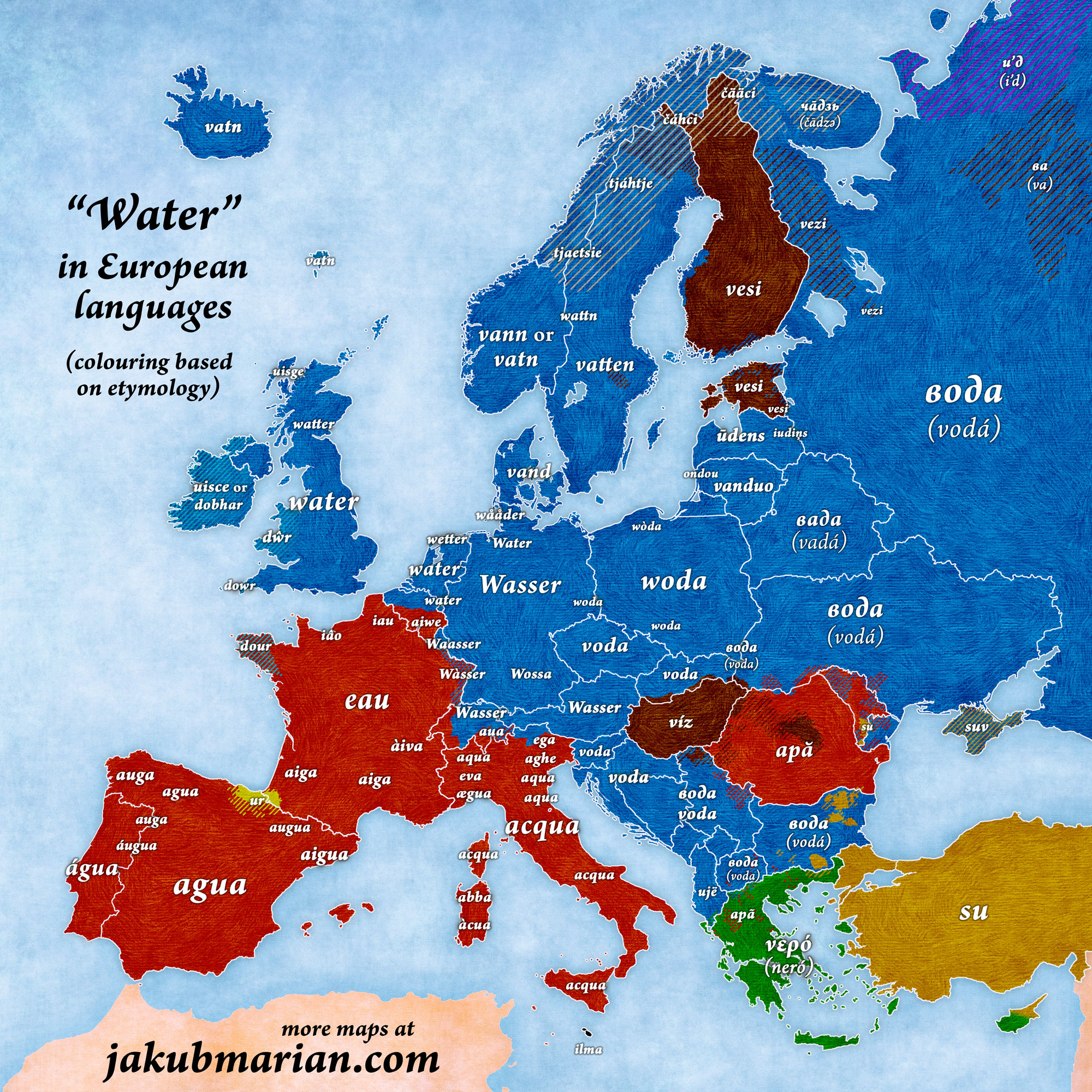The English word “water” derives from Proto-Germanic *watōr, which in turn derives from Proto-Indo-European *wódr̥ (“water”). This is the most common etymology of the word among European languages, and includes North Germanic vatten, vatn, and similar, and Slavic voda, woda, etc. It corresponds to blue-coloured areas on the map below:

Red-coloured areas represent expressions based on the Latin word aqua or its Proto-Italic predecessor *akʷā, which ultimately derives from Proto-Indo-European *h₂ékʷeh₂ (which also means “water”). In the case of Romanian apă and Aromanian apã, the change kʷ → p matches common historical sound changes, but some linguists suggest that they developed independently.
Greek νερό was coined in the Byzantine period from νεαρός (“fresh, new”), based on the phrase νεαρόν ὕδωρ (“fresh water”). The word ύδωρ, which comes from the same PIE root *wódr̥ as English “water”, still exists in Modern Greek, but it is used only in certain specialized phrases.
Welsh dŵr, Irish dobhar, Breton dour, and Cornish dowr come ultimately from Proto-Indo-European *dʰewb- (“deep”). Irish uisce and Scottish Gaelic uisge come, surprisingly, from *wódr̥, or rather its oblique stem *udén-. Similarly for Albanian, via Proto-Albanian *udrijā.
Finnish vesi, Hungarian víz, and similar expressions come from Proto-Uralic *wete, which is possibly connected to the Proto-Indo-European root *wed- (from which *wódr̥ is derived) in some way, but this is not known with certainty (it may be a borrowing from PIE into Proto-Uralic, or it is just a coincidence). Proponents of the proposed Indo-Uralic language family argue that this is an example of a common root shared between both families.
However, since none of what is described above is known with a high degree of certainty (except the Proto-Uralic root), these words are shown in a different colour (it is questionable whether showing etymologies that go beyond the proto-language of the entire family is meaningful anyway).
Sami čáhci, tjáhtje, and similar come from Proto-Uralic *śäčä, and it seems to be an early borrowing from Samoyedic languages (a branch of Uralic languages) rather than a native Sami word.
Turkish and Gagauz su and Crimean Tatar suv come from Proto-Turkic *sub (“water”). Maltese ilma comes from Proto-Semitic *maʾ- (“water”).
 Tip: Are you a non-native English speaker? I have just finished creating a
Tip: Are you a non-native English speaker? I have just finished creating a  Web App
Web App
